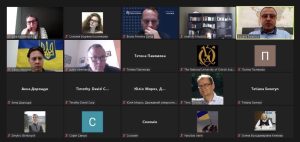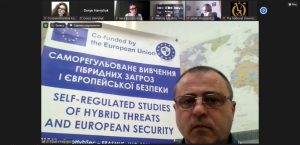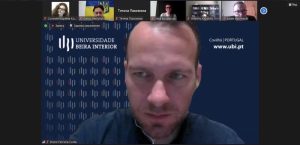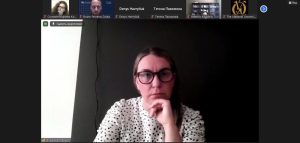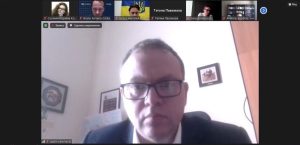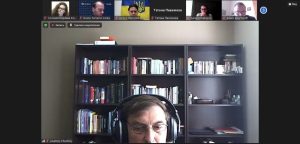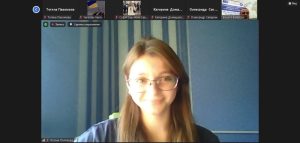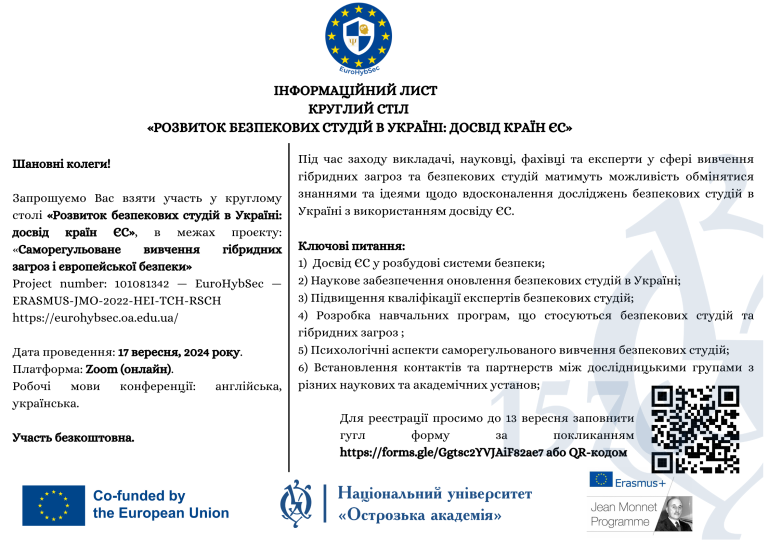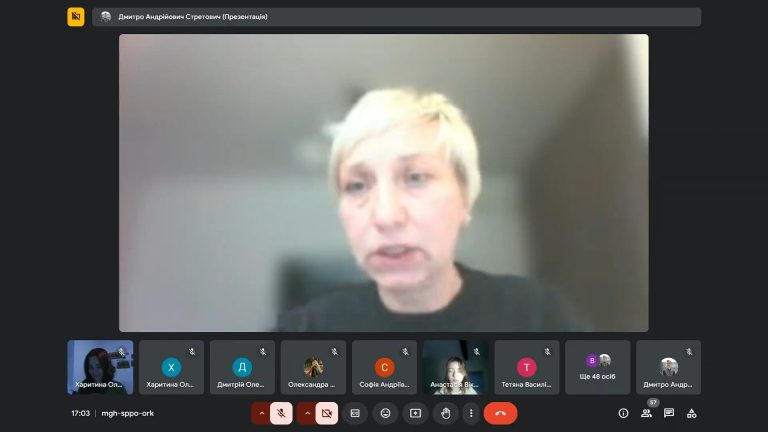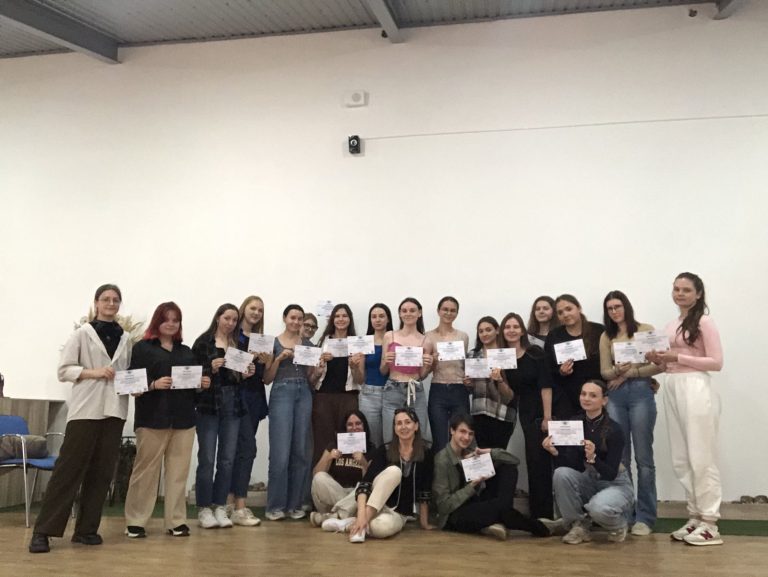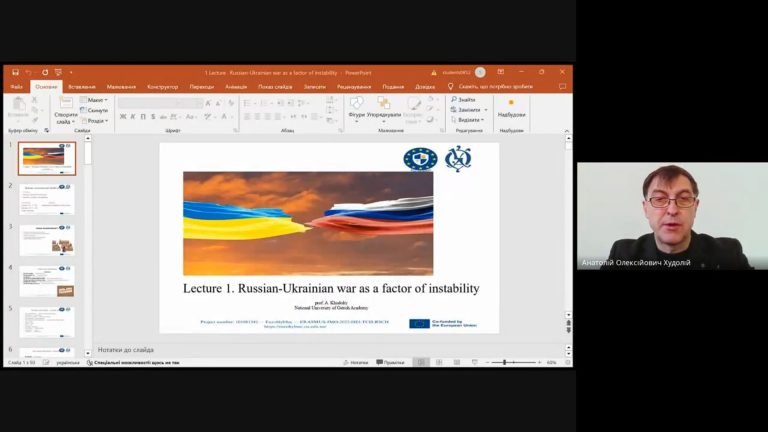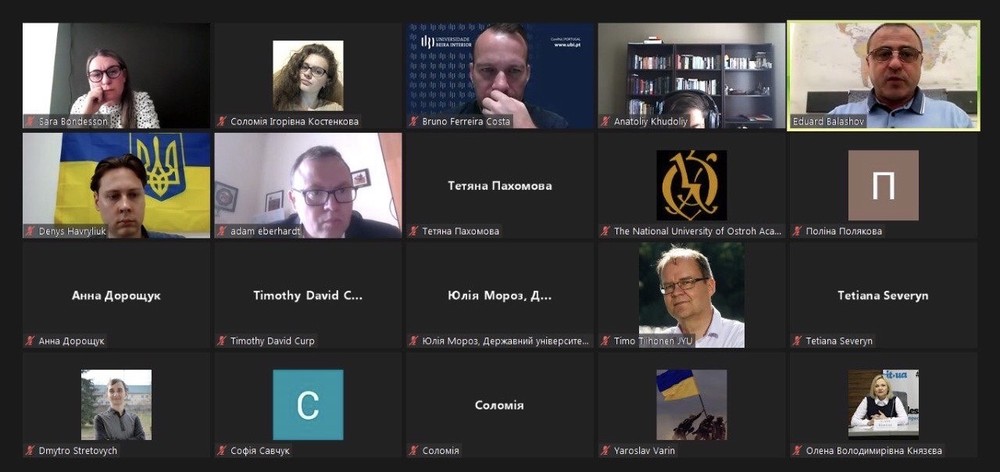
On September 17, a round-table discussion «Developing Security Studies In Ukraine: The Experience of Eu’s Countries» was conducted at Ostroh Academy as part of the European Union’s Jean Monnet project «Self-Regulated Study of Hybrid Threats and European Security».
During the discussion, lecturers, researchers, specialists, and experts in the field of hybrid threats and security studies had the opportunity to exchange knowledge and ideas on how to improve security studies research in Ukraine using the EU experience.
«The project «Self-Regulated Study of Hybrid Threats and European Security» is a logical continuation of our European Union Erasmus+ project WARN – Academic Response to Hybrid Threats. To participate in the round table, we invited researchers, experts, students and teachers from various fields, in particular psychology, international relations, political and security studies, communication, sociology, education and other related majors. We welcome participants and speakers from Estonia, the Republic of Poland, Portugal, the Slovak Republic, the United States, Finland, Sweden, and, of course, our Ukrainian colleagues from Zhytomyr, Odesa, Zaporizhzhia, Kamianets Podilskyi, and Ostroh»,
noted Dr. Eduard Balashov, Professor, Doctor of Psychology, Rector’s Assistant for International Cooperation and Fundraising of the National University of Ostroh Academy, Project Manager.
Throughout the round table, the speakers discussed the EU’s experience in the security development system; scientific support for updating security studies in Ukraine; advanced training of security studies experts; development of curricula related to security studies and hybrid threats; psychological aspects of self-regulated study of security studies; establishing contacts and partnerships between research groups from different scientific and academic institutions.
Among the speakers of the roundtable:
- Dr. Bruno Ferreira Costa, Professor, University of Beira Interior (Portugal); topic: «New borders, new challenges – the future of the European Union in the face of the Russian threat»;
- Dr. Sara Bondesson, Senior Lecturer, Swedish Defence University (Sweden); topic: «Experiences from research collaboration between Ukraine and Sweden»;
- Dr. Adam Eberhardt, Deputy Director, SEW UW, Centre for East European Studies, Warsaw University (Poland); topic: «Security studies in Poland»;
- Dr. Anatoliy Khudoliy, Doctor of Political Science, Professor, National University of Ostroh Academy (Ukraine); topic: «Geopolitical transformation of the modern world as a factor of influence on the intelligence activities of the Ukrainian state»;
- Dr. Magdalena Wrońska, Jan Kochanowski University in Kielce (Poland); topic: «Applications of Artificial Intelligence in Cybersecurity and Defense of Ukraine»;
- Dr. Jarosław W. Przybytniowski, Jan Kochanowski University of Kielce (Poland); topic: «Risk of environmental disasters under the conditions of local security construction»;
- Dr. Paweł Dziekański, Jan Kochanowski University of Kielce (Poland);
PhDr. Ing. Markéta Šimková, PhD student, Vysoká škola DTI (Slovak Republic); topic: «Economic challenges for regional security under conditions of green transformation of the local economy (Polish and Czech Republic experience)»; - Polina Poliakova, BA Student, Educational and Scientific Institute of International Relations and National Security, National University of Ostroh Academy (Ukraine); topic: «Is Telegram a hybrid Threat for Ukraine?»;
The project of the direction Jean Monnet of Erasmus+ program «Self-Regulated Studies of Hybrid Threats and European Security» (101081342 – EuroHybSec – ERASMUS-JMO-2022-HEI-TCH-RSCН) is aimed at promoting European principles of building a strong and secure order by using new forms and methods of communication and creating a clear vision of the European security system for target audiences.
